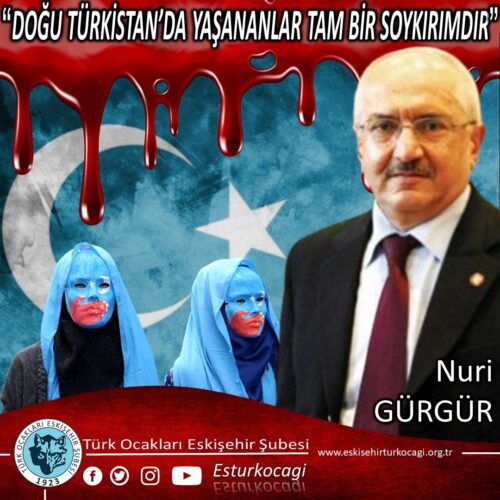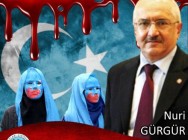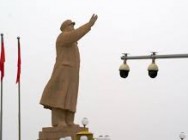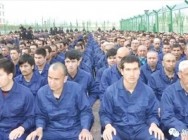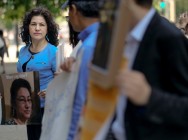Last Minute

- Conflict and Alliance: The US and China: A Centennial Dance: A Century of Relationship from 1900 to 2024
- CHINA RELATIONSEAST TURKESTAN PROBLEM AND TURKEY
- FRONTLINE China Undercover
- Elimination of “Uyghur Counter-Revolutionary Officials” in Academic Fields—Exact Quotes Translated from a Mandarin Audio File
- In Push for Trade Deal, Trump Administration Shelves Sanctions Over China’s Crackdown on Uighurs
- Dalai Lama’s 60th Anniversary Symposium: İlshat Hassan speech in English and Chinese
- Uyghur Detainees from Xinjiang ‘Placed in Nearly Every Prison’ in Shandong Province
- Shahrezad Ghayrat, Unrepresented Women
- Uighur Americans Speak Against China’s Internment Camps. Their Relatives Disappear.
- Rozinisa: The true story of the Uyghur girls in the prison

-

Conflict and Alliance: The US and China: A Centennial Dance: A Century of Relationship from 1900 to 2024
-

CHINA RELATIONSEAST TURKESTAN PROBLEM AND TURKEY
-

FRONTLINE China Undercover
-

Elimination of “Uyghur Counter-Revolutionary Officials” in Academic Fields—Exact Quotes Translated from a Mandarin Audio File
-

In Push for Trade Deal, Trump Administration Shelves Sanctions Over China’s Crackdown on Uighurs
-

Dalai Lama’s 60th Anniversary Symposium: İlshat Hassan speech in English and Chinese
CHINA RELATIONSEAST TURKESTAN PROBLEM AND TURKEY
CHINA RELATIONSEAST TURKESTAN PROBLEM AND TURKEY
Nuri Gürgür ( Honorary President of Turkish Hearths – Turkey)
The ethnic, religious, and cultural genocide of the Turkish people of East Turkestan by People’s Republic of China is increasingly drawing reactions from Western countries and international non-governmental organizations working on human rights. After the US, Canada and the European Union, Britain also decided to sanction four Chinese officials and a Chinese organization for the oppression and human rights violations imposed by China on Uyghur Turks. Britain’s Foreign Secretary Dominic Raab stated that these practices were “one of the biggest human rights crises” since the Second World War and he called the British Ambassador in Beijing back to London. The foreign secretary stated that the evidence of what is happening in the region is clear enough through the satellite images of inhumane practices, testimonies of survivors, leaks from the Chinese government itself, and reliable open-source reports, including Human Rights Watch and Amnesty International. He also stated that religious belief, language, and culture of Uyghurs are subjected to a systematic discrimination, and the message that the international community will not turn a blind eye to this situation will be conveyed to Beijing along with some other Western countries.
On the other hand, Amnesty International made its report entitled “Broken Hearts and Life: The Nightmare of Uyghur Families Leaving by Repression” public, which accused the Chinese government of detaching children from their families and placing them in orphanages as a part of the oppression exerted on Uyghur Turks. These children were asked to be released immediately so that they could return to their families.
While China’s genocide practices have led to expanding reactions in the Western world, Asian and African countries with weak economies and Muslim countries including Turkey either keep silent or sign texts that are drafted by China denying what has been done, aiming to clear itself of what it has been doing by claiming that the practices are merely a part of fight against terrorism. So, they take side with China. For China is one of the biggest economies in the world. It holds enormous economic and financial resources. China carries out communist central and authoritarian state system and capitalist market economy methods together. Hundreds of Chinese companies with large capital invest in industrial and agricultural sectors all over the world, primarily in Asia and Africa. It gets states indebted by giving loans, manages natural resources, enters the stock exchanges, and gets big tenders. In contrast to the imperialist policies of the US and Russia based on military power, China is trying to become a global dominant center in the same direction but with different methods. It is being effective in this respect, relying on its economic and monetary power. The US is seriously concerned about this competition.
Turkey and China have still a trade volume of $22 billion. While we export nearly $2 billion to China, we import ten times more than that, that is $20 billion. However, our relationship is not limited to trade. We see that Chinese companies have invested in various fields in our country in recent years.
In 2014, China’s KBC Company bought 75.5 percent of Tekstilbank by paying 665 million Turkish liras. In 2015, paying $940 million, Cosco Pacific bought operating rights of Kumport, which is Turkey’s third largest port. The same company bought Demirer Kablo for $66.7 million in partnership with a Saudi company and China’s Alibaba company, an ecommerce titan, bought Trendyol for $728 million in 2018. They have become the principal partner of Yavuz Sultan Selim Bridge and Northern Marmara Highway after buying 51% of shares, paying $659.13 million, in Turkey, which is the “main passageway” country of the “Belt and Road Initiative,” the primary project of China’s goal of becoming the world’s biggest global power. Have they made a swap agreement with the Central Bank of the Republic of Turkey in the last two years, and if so, what is the amount? We do not know yet.
In parallel with the recent development of trade and economic relations, Turkey has taken the East Turkestan issue out of the governmental agenda. We do not sign the texts of Western countries and international organizations condemning China nor do we make any official statement. This silence has been admired and applauded by leftist circles who have long had an ideological connection with the Chinese communist rule and find their practices justified. TRT, state-owned radio and television corporation, and newspapers which have been supporting the government for the past three years no longer cover the news about East Turkestan. However, some of them not only reported on the subject before, but they also used to publish articles arguing that what was being done was an attack on people’s religious beliefs.
China is still a global actor with its economic, technological, and military power. Today, besides the US and Russia, it is one of the three centers that influence and direct the political and economic balance in the world. But its strength should not be a reason for Ankara to ignore what has been done to more than thirty million Turks and Muslims. Having brought our diplomatic relations to the point of freezing with Egypt upon the overthrow of Morsi as a result of the coup, and with Israel due to the pressure on the Palestinians and embargo on the Gaza, and yet remaining silent and refraining from reacting even with a diplomatic language, albeit it is a limited and careful one, the government is taking on the burden of a national and historical fault. Yet this attitude of Ankara is not new. A similar mistake was made during the 57th government term when Ecevit was the Prime Minister. In 2000, during his visit to Turkey the Chinese president was awarded the State Medal, which is our highest reward.
Today, many Western countries do not only condemn China, which violates human rights with its practices against Uyghur Turks, but they compel it to take a step back by making sanction decisions. The size of the commercial and economic relations of all these countries with China is incomparably higher than ours. But there is no deterioration in their relationships due to these reactions. Because in the global economy, everyone needs each other, that is, they have mutual interests. Nobody should worry, the Chinese government will not attempt to interrupt relations between us because Turkey wants to comply with the rules of international law, for they know business much better than we do. They are aware of the fact that they earn at least three or four times more than us in this field, and that our geographical location has an importance with no alternative in the “Belt and Road Initiative”, which is their strategic project.
On March 25, the Chinese Foreign Minister has visited Ankara for two days. He was received by President Erdoğan and he had a long meeting with his counterpart Mevlüt Çavuşoğlu. No detailed explanation was made about the talks. However, it was stated that Chinese party was reminded that while according to the agreement signed months ago with the Chinese company that produced the “Sinovac” vaccine, 50 million doses of vaccine should have arrived in our country until February-March and 100 million doses after two months, only fifteen million doses have been received so far, and they were asked to compensate the delay. It was briefly stated that the Chinese Foreign Minister had no information on the subject and that he would inform the prime minister when he returned to his country.
While Western countries are skeptical about Sinovac vaccine and they hesitate to order it, Turkey has contributed to its promotion by ordering 100 million doses. They should be grateful for our reference. In China, where production and trade are conducted under the centralized planning and control, it is impossible that the administration would have no information about the time when the vaccine will be sent to Turkey and in what quantities, and about the delay we experience. How does the Minister of Foreign Affairs not know that a question on this matter will be directed to him when he comes to our country? The meaning of this answer in diplomacy is as follows: Beijing sees that we have great difficulties due to the absence of vaccine that we ordered months ago. It uses the vaccine problem as a means of pressure and wants Turkey not to scratch the East Turkestan issue and to keep its silence, and even to pass Exchange Agreement from the parliament. In short, it blackmails.
The meeting between the Foreign Ministers of the two countries was unusually closed to the public. No joint press conference was held, although it is a common practice after the meetings at this level, nor did they make a declaration on which issues were discussed. However, the world public opinion was closely watching this visit particularly during a time when political and economic tension was rising up between Western countries and China and mutual military power displays was taking place in the Pacific. We do not know whether in response to our demand for vaccines the Chinese Foreign Minister brought up during the negotiations the fact that Turkish Grand National Assembly has not put the Extradition Agreement on its agenda yet, which was signed three years ago and ratified by the Chinese Parliament last year or if so, what response was given.
East Turkistan, which looks like a huge prison where around thirty million Muslim Turks are kept, will go down in the history of humanity and it is not an issue that can be ignored and forgotten for whatever reason. We are no longer surprised at the insensitivity of the Islamic world, which has been asleep in a deep idleness for centuries and has not yet been aware of its belief and identity, we only feel pity for them. Besides, we are saddened by the indifference of the Turkish states, which gained their independence 30 years ago as a result of the collapse of the Soviet Union with a global earthquake. However, we should not expect much from these Turkish states due to the increasing economic, political, and population pressure on them that can turn into threats at any moment because they border China.
But the position of the Republic of Turkey’s situation is different from all of them. We are the only Turkish and Muslim state that has preserved its independence for centuries. We have always been aware of the responsibilities that our religious and national identity places on our shoulders for a thousand years. We did not turn our backs on other Turkish and Muslim people. We helped them as much as we could even in our most difficult times. We have never expected anything in return of what we do. Today, we cannot be in a different attitude. Attitudes that do not comply with the character, honor, greatness, and dignity of our nation that have been fined through the rich history of our nation would mean self-denial. There are diplomatic actions that we can take. Failing to do these, remaining silent and being bystanders will not be just a political mistake, but a national and historical fault, and nobody can stand up to it.
RELATED NEWS






